Supreme Court
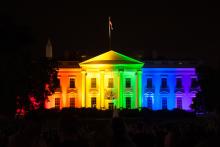
Lost amid the ongoing furor over President Trump’s travel ban, and the ecstasy (and agony) over his first pick for the Supreme Court, was another move on Jan. 31 that is starting to give social conservatives pause: Trump’s continuance of the executive order by President Obama’s policy that protects gay and transgender employees from discrimination while working for federal contractors.
And not only did Trump extend the protections, but he did so in powerful language that used the community’s own “LGBTQ” identifier, while vowing that Trump would be “respectful and supportive of LGBTQ rights.”
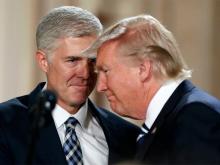
President Donald Trump had promised last week evangelical Christians would “love” his nominee for the Supreme Court.
And in fact, said evangelical author and president of The KAIROS Company Johnnie Moore, a member of Trump’s evangelical advisory board, “Evangelicals are ecstatic.”
On Jan. 31, Trump nominated Neil Gorsuch to fill the open seat on the Supreme Court left by the unexpected death of Justice Antonin Scalia nearly a year ago.

Calvary Baptist Church, a progressive Baptist landmark in the heart of downtown Washington, has named a gay couple as co-pastors.
Sally Sarratt and Maria Swearingen were presented to the congregation during worship services on Jan. 8 and will begin their new jobs on Feb. 26.
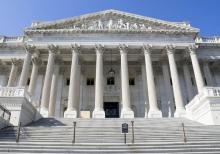
The dismantling of the Voting Rights Act of 1965 by the Supreme Court and conservative state elected officials may be a major reason behind Donald Trump's 2016 U.S. presidential election win, reports ThinkProgress. This was the nation’s first presidential election since the Voting Rights Act's implementation 50 years ago in which the act didn’t provide full protection to voters of color.
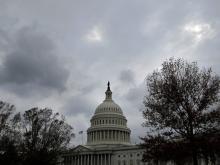
Back when so many thought Hillary Clinton would be the next president, two dozen African-American leaders wrote to the Democratic nominee, asking her to explain her policies related to the poor and the police.
African Methodist Episcopal Bishop Frank M. Reid III said black clergy will make some of the same demands of President-elect Donald Trump.
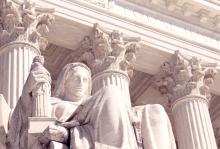
As a Christian who truly believes that abortion is a moral issue, I am deeply committed to dramatically reducing them. But criminalizing an often desperate choice is not the answer. We must also be deeply committed to the economic security, healthcare, and childcare choices that women need, which are critical to reducing abortion. I believe in the sacredness and dignity of life from womb to tomb. But a “consistent ethic of life” also ending poverty, human trafficking, the death penalty, ceaseless and senseless wars, and weapons of mass destruction.

For the first time in three general election debates, a moderator asked the presidential candidates on Oct. 19 about abortion.
Given that abortion has rightly been described as the source of America’s second civil war, there has been a baffling lack of engagement with it this election cycle.
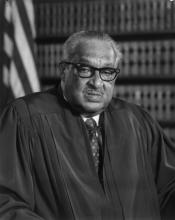
On Aug. 30, 1967, Thurgood Marshall was confirmed by the United States Senate as the first African-American Supreme Court Justice. Throughout his tenure as an Associate Justice of the Supreme Court, and even prior to his nomination to the court by President Johnson, Marshall left his mark on various cases that have proved pivotal to pushing America closer toward being a fair and just society for all.
Here are five Supreme Court cases in which Marshall fought for justice—often while he was on the other side of the bench—and won.
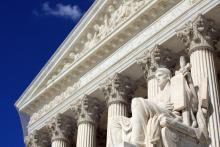
The 6-2 ruling in Voisine v. U.S. upholds a federal law that prohibits any person convicted of a “misdemeanor crime of domestic violence” from owning a firearm.
The case was brought by two men convicted of misdemeanor assault under state law and later charged with federal crimes for possessing firearms. The plaintiffs, Stephen Voisine and William Armstrong, argued that their crimes did not count under federal statute because their crimes were reckless, not intentional or knowing.
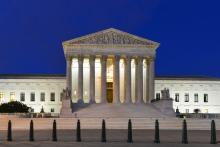
The Supreme Court struck down Texas’ restrictive abortion laws on June 27 in one of the most important abortion-related cases in years.
The Court ruled 5-3 in the case known as Whole Woman’s Health v. Hellerstedt, which served to clarify the 1992 decision Planned Parenthood v. Casey. That case concluded that while the states are free to regulate abortion, they cannot place an “undue burden” on women’s constitutional right to abortion.
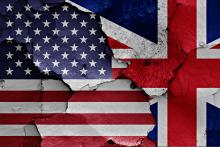
I am a stranger in two strange lands. Born in the U.K. and an immigrant to the U.S., my understanding of self changed yesterday. As the U.K. voted to leave the EU and the U.S. Supreme Court’s tied decision left an appeals court block on President Obama’s executive order on immigration in place — my identity as an immigrant and a Briton changed.

FOR IMMEDIATE RELEASE
June 23, 2016
Washington, DC - Rev. Jim Wallis, President and Founder of Sojourners, today issued the following statement on the Supreme Court's decision regarding President Obama's executive actions on DAPA, DACA:

"The race-conscious admissions program in use at the time of petitioner’s application is lawful under the Equal Protection Clause," said the court.
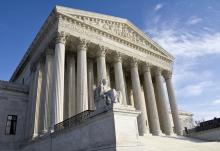
The Supreme Court tied 4-4 in the crucial immigration case U.S. v. Texas.
“The judgment is affirmed by an equally divided Court,” the one-sentence opinion reads.
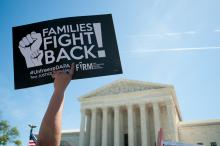
The Supreme Court is expected to hand down as early as this week a decision in U.S. v. Texas, a lawsuit brought by 26 states against the Obama administration for its executive actions allowing certain undocumented immigrants to stay in the U.S.
A ruling in the Obama administration’s favor, allowing DAPA and expanded DACA to proceed, could affect up to 4 million undocumented immigrants. A large majority of Americans support DAPA.

A few weeks ago after Mass at our local parish, I spoke with David, a young Guatemalan father who was anxious about the future. His concerns were understandable.
David is a devoted Catholic, a hard worker, and a family man. “I have been here for several years now, and my children are citizens,” he told me, gazing warmly at his chubby son in the stroller. “I worry that someday [the immigration authorities] will deport me and send me far away from them. This DAPA thing — it is the only hope to keep my family together.”
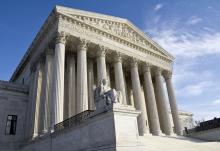
The Supreme Court decided on May 16 to defer to lower courts any decision regarding the Affordable Care Act's birth control mandate.
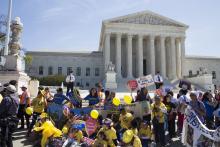
On Monday morning, we stood outside of the U.S. Supreme Court building because, once again, we found ourselves at the mercy of a justice system weighing the legality of our presence in our own country.

Contact: Michael Mershon, Director of Advocacy and Communications
Phone: 202-745-4654
Email: mmershon@sojo.net
April 19, 2016
Today, Sojourners sent the following letter to Congress as part of the Interfaith Immigration Coalition's "Letter a Day" campaign:
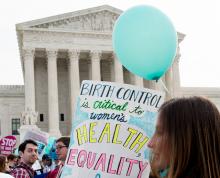
In the case, various religious groups are suing the federal government over the HHS mandate, the requirement to provide contraception coverage in employees’ health insurance plans. There is currently an opt-out option, but the Little Sisters of the Poor, the co-plaintiffs, and their supporters do not believe that the opt-out is strong enough and thus that they are still complicit in providing contraception. They say, therefore, that the HHS mandate is a violation of their religious freedom.